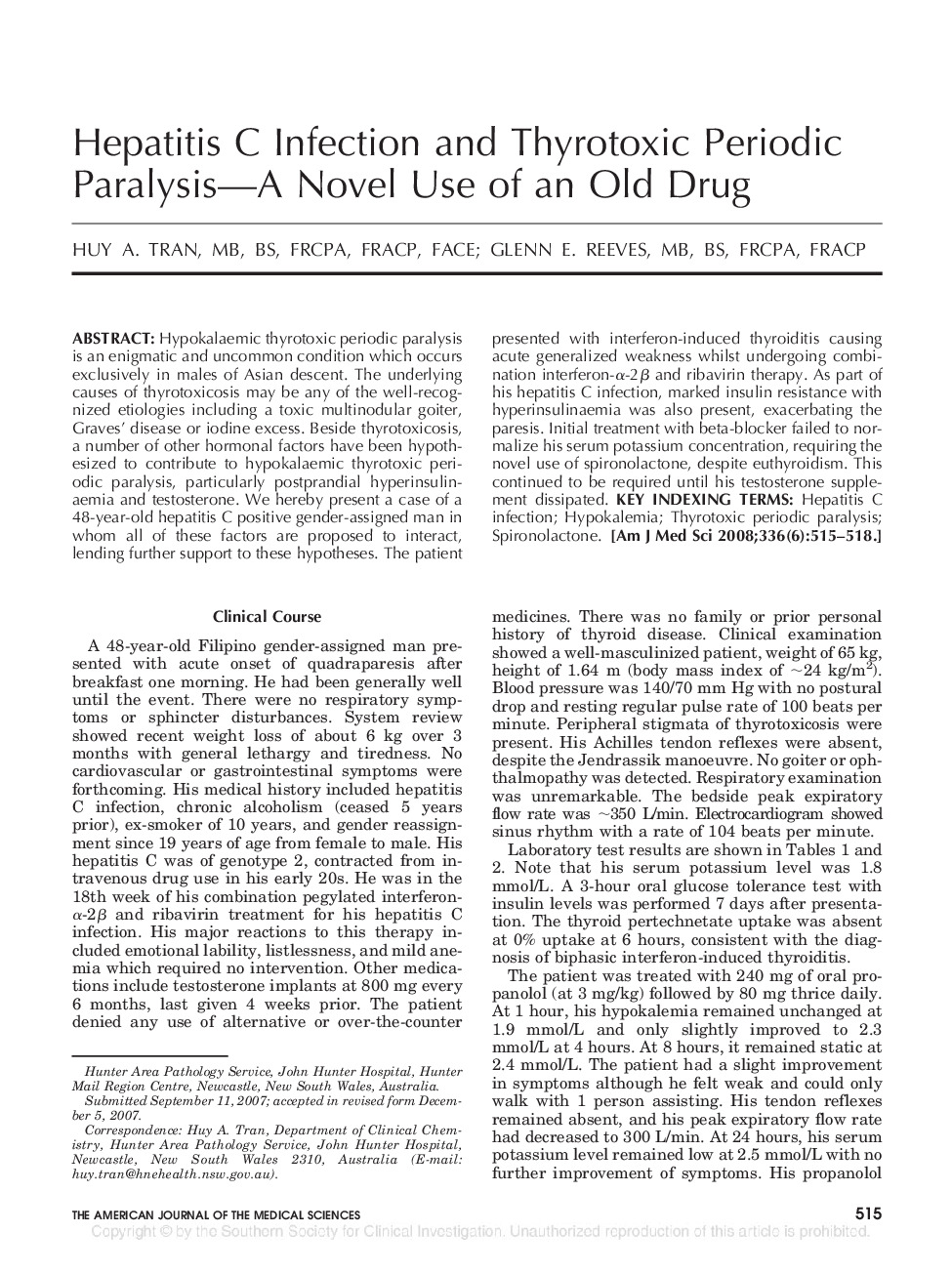| Article ID | Journal | Published Year | Pages | File Type |
|---|---|---|---|---|
| 2864396 | The American Journal of the Medical Sciences | 2008 | 4 Pages |
Abstract
Hypokalaemic thyrotoxic periodic paralysis is an enigmatic and uncommon condition which occurs exclusively in males of Asian descent. The underlying causes of thyrotoxicosis may be any of the well-recognized etiologies including a toxic multinodular goiter, Graves' disease or iodine excess. Beside thyrotoxicosis, a number of other hormonal factors have been hypothesized to contribute to hypokalaemic thyrotoxic periodic paralysis, particularly postprandial hyperinsulinaemia and testosterone. We hereby present a case of a 48-year-old hepatitis C positive gender-assigned man in whom all of these factors are proposed to interact, lending further support to these hypotheses. The patient presented with interferon-induced thyroiditis causing acute generalized weakness whilst undergoing combination interferon-α-2β and ribavirin therapy. As part of his hepatitis C infection, marked insulin resistance with hyperinsulinaemia was also present, exacerbating the paresis. Initial treatment with beta-blocker failed to normalize his serum potassium concentration, requiring the novel use of spironolactone, despite euthyroidism. This continued to be required until his testosterone supplement dissipated.
Related Topics
Health Sciences
Medicine and Dentistry
Cardiology and Cardiovascular Medicine
Authors
Huy A. MB, BS, FRCPA, FRACP, FACE, Glenn E. MB, BS, FRCPA, FRACP,
